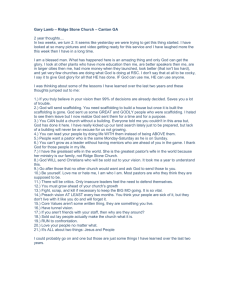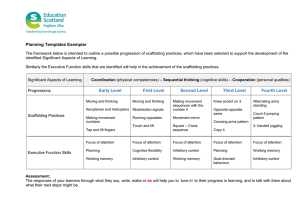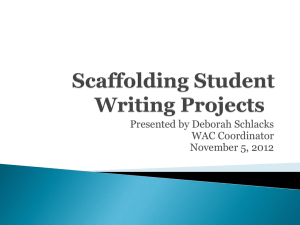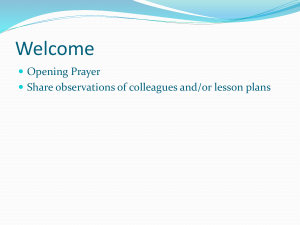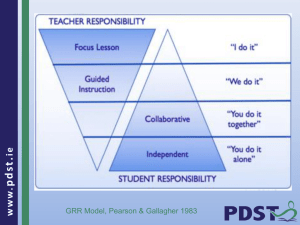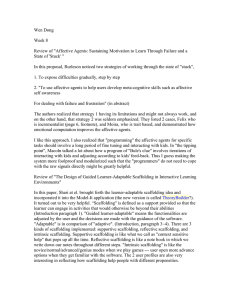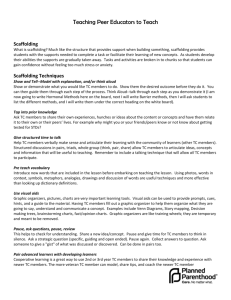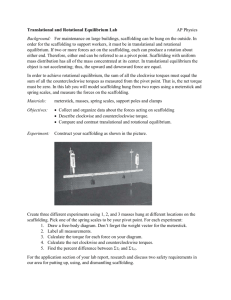Scaffolding Voluntary Summer Reading for Children
advertisement
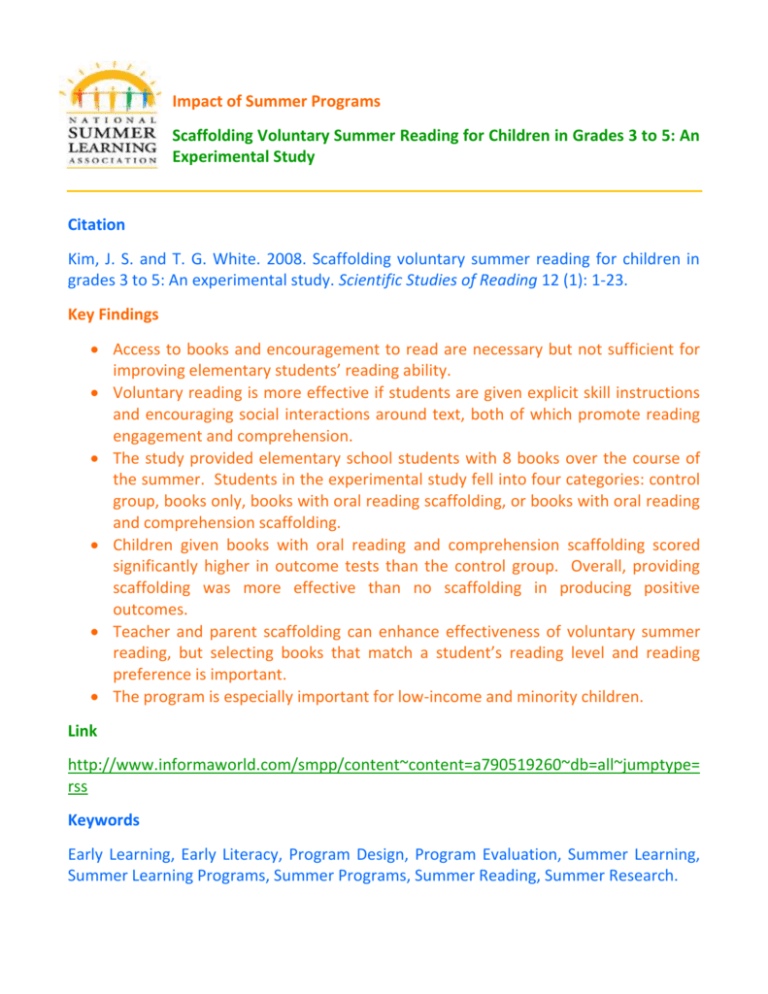
Impact of Summer Programs Scaffolding Voluntary Summer Reading for Children in Grades 3 to 5: An Experimental Study Citation Kim, J. S. and T. G. White. 2008. Scaffolding voluntary summer reading for children in grades 3 to 5: An experimental study. Scientific Studies of Reading 12 (1): 1-23. Key Findings Access to books and encouragement to read are necessary but not sufficient for improving elementary students’ reading ability. Voluntary reading is more effective if students are given explicit skill instructions and encouraging social interactions around text, both of which promote reading engagement and comprehension. The study provided elementary school students with 8 books over the course of the summer. Students in the experimental study fell into four categories: control group, books only, books with oral reading scaffolding, or books with oral reading and comprehension scaffolding. Children given books with oral reading and comprehension scaffolding scored significantly higher in outcome tests than the control group. Overall, providing scaffolding was more effective than no scaffolding in producing positive outcomes. Teacher and parent scaffolding can enhance effectiveness of voluntary summer reading, but selecting books that match a student’s reading level and reading preference is important. The program is especially important for low-income and minority children. Link http://www.informaworld.com/smpp/content~content=a790519260~db=all~jumptype= rss Keywords Early Learning, Early Literacy, Program Design, Program Evaluation, Summer Learning, Summer Learning Programs, Summer Programs, Summer Reading, Summer Research.
